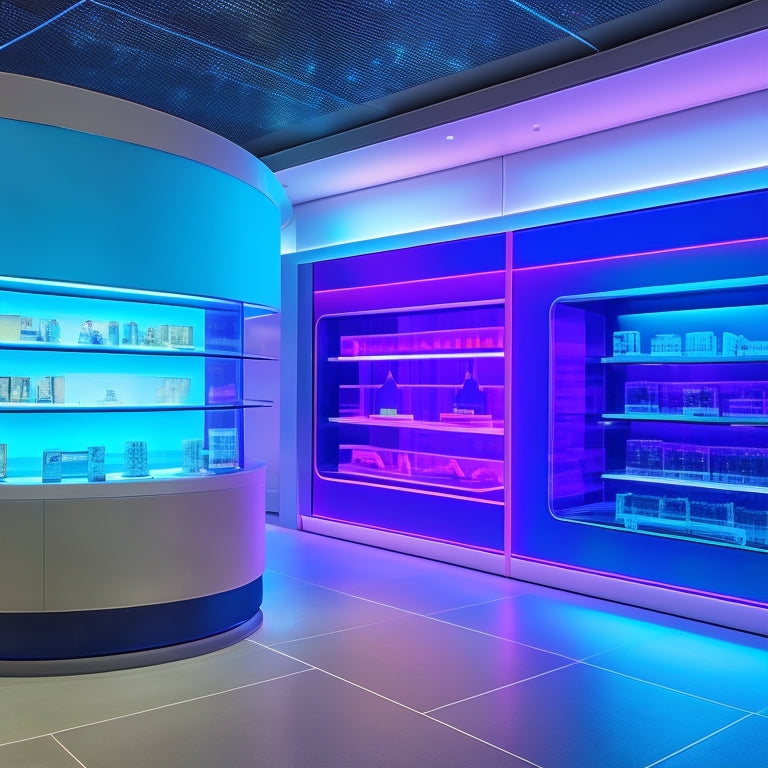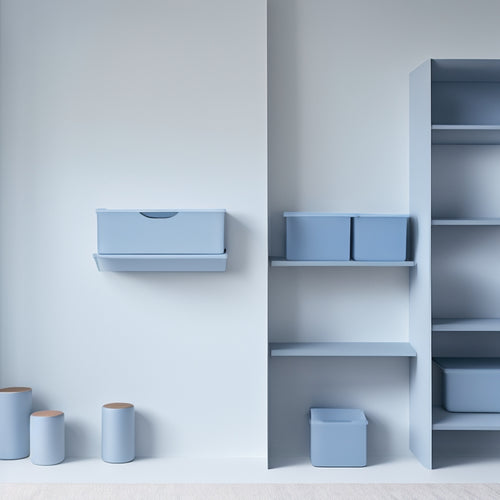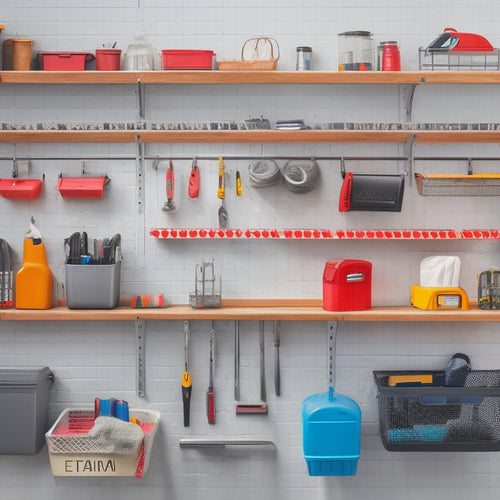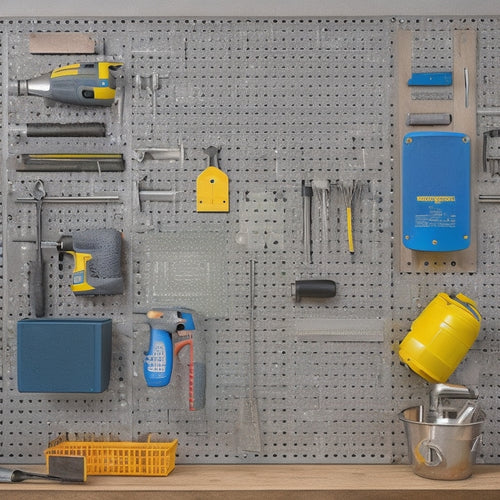
Revolutionizing Retail: Merchandise Display Innovations Unleashed
Share
You're on the brink of unleashing a retail revolution, where strategic merchandise displays and cutting-edge innovations converge to captivate customers, drive sales, and elevate the shopping experience. By understanding unique merchandise characteristics and tailoring approaches to consumer behavior, you can maximize engagement and sales. Effective visual merchandising involves arranging products for visibility and accessibility, while leveraging retail psychology and storytelling to evoke emotions. Innovative display techniques, software solutions, and immersive experiences can further amplify your efforts. As you explore the intersection of art and science, you'll uncover new ways to transform your retail strategy and leave customers enthusiastic for more.
Key Takeaways
• Merchandise display innovations drive sales and customer engagement by leveraging interactive displays, virtual try-ons, and augmented reality technologies.
• Strategic product placement and visual merchandising essentials like balance, harmony, and storytelling enhance the shopping experience and influence purchasing decisions.
• Software solutions optimize product placement, streamline inventory management, and provide data-driven insights to refine merchandising strategies and boost sales.
• Immersive retail experiences foster meaningful connections with customers, driving loyalty and long-term growth through interactive displays and personalized promotions.
• Innovative display technologies and digital screens provide customers with relevant product information, promotions, and personalized recommendations, elevating the overall shopping experience.
Merchandise Types and Strategies
When it comes to crafting effective merchandising strategies, understanding the unique characteristics and sales patterns of different merchandise types is essential. This understanding enables you to tailor your approach to maximize engagement and drive sales.
You'll want to take into account how consumer behavior varies depending on the type of merchandise. For instance, staple merchandise, like everyday essentials, benefits from strategic placement in high-traffic areas, making it easily accessible to customers.
On the other hand, seasonal merchandise, such as holiday-themed items, should be showcased in attention-grabbing seasonal displays that capitalize on current retail trends. By recognizing these differences, you can develop targeted strategies that resonate with your customers and ultimately boost sales.
Visual Merchandising Essentials
To create visually appealing displays that captivate customers and drive sales, you'll need to master the art of visual merchandising, which involves strategically arranging merchandise to maximize visibility, accessibility, and overall shopping experience.
By understanding retail psychology, you'll know how to tap into customers' emotions and behaviors, influencing their purchasing decisions.
Here are some visual merchandising essentials to get you started:
-
Balance and harmony: Use color psychology to create a visually appealing palette that draws customers in.
-
Clear focal points: Guide customers' attention to key products or promotions using strategic placement and signage.
-
Contrast and texture: Mix different textures, colors, and shapes to add depth and visual interest to your displays.
- Storytelling: Create a narrative around your products to evoke emotions and build connections with customers.
Display Techniques for Success
By carefully selecting and implementing the right display techniques, you can greatly increase sales, enhance customer engagement, and create a memorable shopping experience that sets your store apart from the competition.
Interactive displays, for instance, can captivate customers and encourage them to explore your products. Creative arrangements, such as pyramid displays or asymmetrical layouts, can add visual interest and draw attention to specific items. By combining these techniques with strategic product placement, you can guide customers through your store and influence their purchasing decisions.
Consider using storytelling elements, like themed displays or lifestyle settings, to create an immersive experience that resonates with your target audience. By doing so, you'll be well on your way to crafting a retail environment that drives sales, builds brand loyalty, and leaves a lasting impression.
Software Solutions Unlocked
As you've carefully crafted your display techniques to captivate customers and drive sales, it's time to harness the full potential of your visual merchandising strategy by tapping into the power of software solutions that can amplify your efforts and refine your approach.
By integrating software into your retail strategy, you'll access a new level of efficiency, precision, and data-driven insights. Here are just a few ways software solutions can transform your visual merchandising:
-
Optimize product placement: Use software to determine the most effective shelf layout and product arrangement to maximize sales and visibility.
-
Streamline inventory management: Leverage software to track inventory levels in real-time, ensuring you're always stocked with the right products.
-
Enhance customer engagement: Utilize software to create interactive displays and personalized promotions that resonate with your target audience.
- Analyze sales patterns: Tap into software-driven insights to refine your merchandising strategy and drive retail transformation.
Elevating Customer Experience
With the right visual merchandising strategy in place, you can now focus on crafting an immersive retail experience that resonates with your customers on a deeper level, creating a lasting connection that drives loyalty and long-term growth.
By incorporating interactive displays, you can boost customer engagement and encourage exploration. Virtual try-ons, interactive kiosks, and augmented reality experiences can all be used to create an immersive and memorable shopping experience.
Additionally, strategically placed digital screens can provide customers with relevant product information, promotions, and personalized recommendations. By leveraging these innovative display technologies, you can create a dynamic retail environment that fosters meaningful connections with your customers, ultimately driving sales and loyalty.
Frequently Asked Questions
How Often Should I Refresh My Store's Visual Merchandising Displays?
You should refresh your store's visual merchandising displays every 4-6 weeks, incorporating seasonal themes and brand storytelling to keep customers engaged, and using data-driven insights to optimize product placement and visibility.
Can I Use the Same Display Strategy for Online and In-Store Retail?
You think you can reuse the same display strategy online and in-store? Think again! To truly captivate customers, you need to create omnichannel synergy, weaving digital storytelling into your online displays and immersive experiences into your in-store layouts.
How Do I Measure the Effectiveness of My Visual Merchandising Efforts?
You measure the effectiveness of your visual merchandising efforts by leveraging data analytics to identify sales correlation, tracking metrics like conversion rates, dwell time, and sales lift to refine your strategy and maximize ROI.
Are There Any Specific Visual Merchandising Techniques for Small Stores?
You think you're stuck with a tiny store, but think again! Corner layouts can be your secret weapon, and window displays can shine like diamonds, drawing customers in with strategically placed merchandise that maximizes your limited space.
Can I Train My Employees to Create Effective Visual Merchandise Displays?
You can empower employees to create engaging displays by investing in skill development and fostering employee engagement. Provide thorough training on visual merchandising techniques, and encourage them to experiment with creative layouts and product arrangements.
Related Posts
-

Small Storage Bins to Maximize Shelf Space
When maximizing shelf space, you want to make the most of every inch. Small storage bins are the answer, but choosing...
-

3 Simple Steps to a Garage Tool Wall You'll Love
To create a garage tool wall you'll love, start by planning the space, taking inventory of your tools, and measuring ...
-

How to Hang a Pegboard in 5 Easy Steps
You'll hang a pegboard in 5 easy steps by first preparing the wall, ensuring it's sturdy and free of obstructions. Ne...


